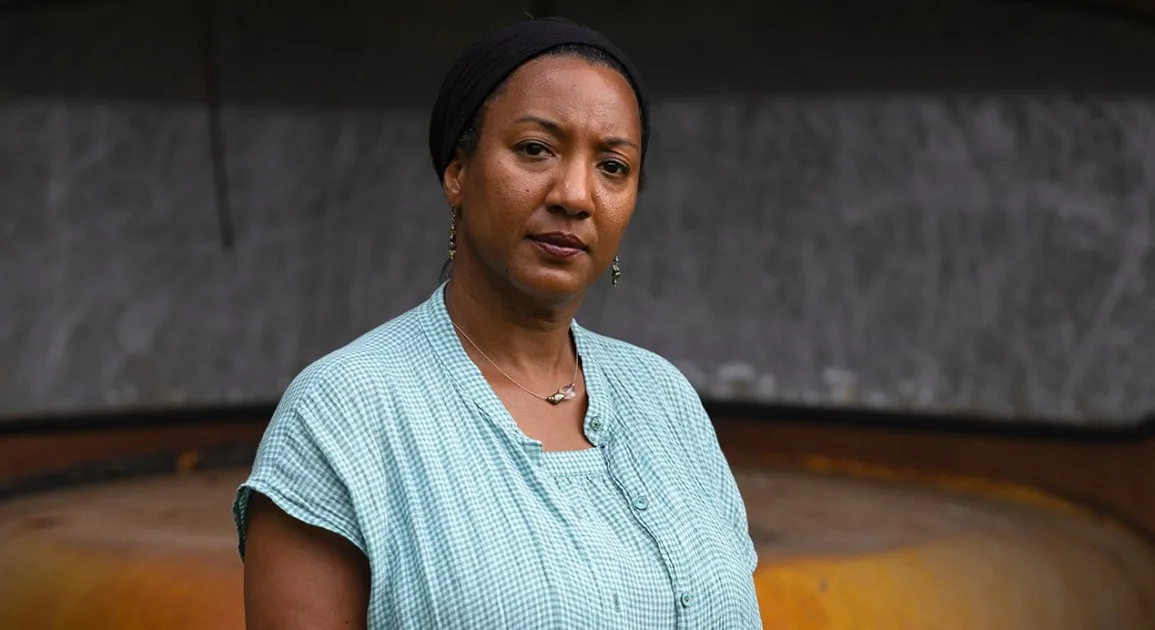
In emails to Reuters, Chris Guthrie wrote that he met with Helen Craig Smith after the funeral. She told him that Andrew Guthrie was an “anti-slavery proponent” who “purchased slaves from surrounding farms to bring them to his farm to befriend them,” he wrote. During the Civil War, Chris wrote, the Guthrie ancestor and the men he enslaved formed a regiment and fought for the Union. Chris said the Guthries’ Union sympathies resulted in the family being “isolated for decades.”
Chris wrote to Reuters in a later message that he had “no idea if the story of Andrew is true,” just that Helen had recounted it. Whether Chris knew that Helen was herself a descendant of the people his ancestors enslaved is also unclear. Chris didn’t reply to follow-up questions.
Reuters found no evidence that Andrew Guthrie formed a regiment of Black soldiers. His son, Robert A. Guthrie, did fight for the Union. According to a history of Perry County published by Goodspeed Publishing in 1886, he “raised a company” for the 2nd Tennessee Mounted Federal Infantry, though there is no mention of whether Black soldiers served in that unit.
And whatever Andrew Guthrie felt about the people he enslaved, documents reviewed by Reuters show his dealings in human bondage spanned decades. Records show Guthrie enslaved six people in 1850 and nine in 1860.
Four bills of sale in Perry County deed books mention Amy from 1842 through 1847. They document how she was owned by Andrew H. Guthrie, who sold her to neighbor Hugh Kirkpatrick, who sold her to relative James Kirkpatrick, who gave her to his daughter Jane, the wife of Andrew H. Guthrie.
As to Chris Guthrie’s comment that the Guthries were “isolated for decades” after the war, the Goodspeed history indicates that Robert A. Guthrie served as Perry County Clerk from 1868-1870.
In one of his emails, Chris also mentioned that Helen gave him a signed copy of her novel.
In the book, Helen tells of the ties between the Hunters, a prominent African American farm family in Tennessee, and a white character named Obeth Gutherie, a slaveholder who nonetheless fought for the Union during the Civil War. Helen writes that Obeth Gutherie had a daughter, Amy, “whose mother had been a slave and still remained a worker in the Gutherie Place” after the Civil War.
Helen writes of the “scarring effects” of slavery and how the characters, whose sagas closely parallel those of her relatives, persevered: “To a system they understood but barely, they’d lost a measure of their identity — who they were, from whence they came; what they might have become. But through their will, their strength, their tenacity — their willingness and ability to adapt, and by the infinite grace of God, they’d survived.”
‘My family has … lived this dream’
Brett Guthrie graduated from the U.S. Military Academy at West Point in 1987, served in the Army as an officer, and then went on to work for the family business. He later attended the Yale School of Management and was serving as a Kentucky state senator when the National Republican Congressional Committee recruited him to run in 2008 for the seat he now holds. The success of the Guthrie family business, Trace Die Cast, helped propel him to Congress.
“When you’re recruiting a candidate, things you’ll often look at are: Is the person a current elected official, or a prominent businessperson, or is the family name a recognizable one?” said Ken Spain, who was the committee’s spokesman at the time. “In this case, it was all of the above.”
Spain also told Reuters that Brett had the crucial support of U.S. Sen. Mitch McConnell, a longtime ally of his father, Lowell. McConnell would “drop everything” to take a call from Lowell, a former aide once told a Kentucky newspaper. When the Republican Party was looking for a congressional candidate in 2008, McConnell singled out Brett for praise in the primary.
Brett’s 2020 financial disclosure form shows he remains tied to the company as an uncompensated board member. Much of his money is in trusts invested in the company, and he has disclosed owning a 25% stake in the firm. His wealth has grown from about $500,000 when he entered Congress to several million dollars today, according to estimates from OpenSecrets, a nonpartisan research group that uses the public financial disclosures of politicians to gauge their net worth.
Politically, he is a rank-and-file, traditional Republican who, according to people in both parties, keeps a low profile. He did not object to the results of the 2020 presidential election. He has twice voted in favor of removing Confederate statues from Capitol Hill, a position supported by most Democrats.
The Guthrie family has shared its wealth. In 2002, Lowell funded a bell tower at Western Kentucky University in honor of U.S. service members who died in battle, including a brother killed in the Korean War. In a speech at the dedication, Brett said his Uncle Bobby had helped preserve the American Dream.
“My family,” Brett added, “has certainly lived this dream.”
The Craigs say they too have lived the dream. Reginald Craig, Mack’s son, said he has accomplished almost every goal he set for himself. He has a college degree, a good job as a salesman, and the respect of his colleagues. He owns a home and drives a Mercedes. Reginald considers himself a staunch conservative, and a proud supporter of Donald Trump.
“I respect his ability to create lots of businesses. He’s created a lot of jobs,” said Reginald, who said he’s “1,000%” behind Trump’s 2024 campaign.
Others in the family, including Lacretia, are on the political left.
If she could meet with Brett Guthrie, Lacretia would ask him what values guide his work. She’d ask if, like her, he feels moved by his family history to work for a better future.
“I don’t have a desire for anyone to feel guilty for actions of others in the past,” she said. But if we don’t confront that past, she added, it will continue to contaminate the present. “Conversations about race might leave a scar,” Lacretia said, “but they will also help us heal.”



